Nearshoring to Mexico comes with its own built-in benefits compared to operating in the U.S. or China. Lower labor costs and lease prices, as well as unique tax exemptions, are the main areas where manufacturers can save.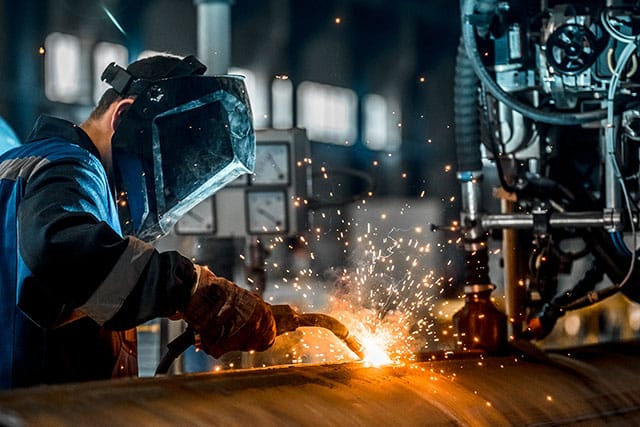
Moreover, partnering with a Mexico shelter company can expand upon these advantages, resulting in even further cost savings and benefits. Here’s how:
Mexico’s competitive labor market is one of the key reasons why U.S. and other foreign manufacturers set their sights on nearshoring to Mexico when they want to expand. With a highly skilled workforce to recruit from and a lower cost of labor, operators can fulfill the technical roles they need while reducing their expenses.
Additionally, when working with a Mexico shelter company like IVEMSA, manufacturers can save thousands of dollars in monthly costs associated with HR management and payroll, and labor compliance, among many other administrative responsibilities necessary for production setup.
U.S. manufacturers also benefit from competitive lease prices in Mexico. Industrial leases are approximately $.70 per square foot per month for Class A buildings. These are well-constructed facilities in state-of-the-art industrial parks located near main transportation routes for convenience.
Furthermore, thanks to the close proximity between Mexico and the U.S. market, manufacturers can save on shipping expenses compared to operating in China. Also, as the competition spikes to find viable industrial space, shelter services in Mexico can help manufacturers cut down on costs and maximize resources when choosing a site.
Shelter services start with the site selection process, which involves a matrix of potential factories in Mexico based on the company’s specific needs. A shelter company works within a manufacturer’s budget and limits the legwork of visiting multiple sites. This accessibility to local expertise and experience creates a more seamless transition when securing a project site and setting up operations.
The IMMEX program was first introduced as a way to entice foreign manufacturers to invest in production in Mexico. Since then, it has helped global leaders expand their companies and receive unique tax benefits.
Those approved under the IMMEX program are exempt from the 16% value-added tax (VAT) on all temporarily imported equipment, materials, and raw goods being used for production. However, it can take several weeks, possibly months, before a standalone entity is approved.
Whereas, manufacturers operating under the shelter model can take advantage of these tax benefits from day one since all permits and certifications needed to operate are already in place.
For those operating in Mexico for the first time, the learning curve can be steep, which is why the majority of manufacturers choose to work with a Mexico shelter company. Shelter services include HR, accounting, taxes, trade compliance, and more.
By delegating these tasks to a shelter company, manufacturers can fully focus on production and maintain ownership of all equipment, processes, and intellectual property rights. It also allows for a quicker timeline of three to four months before production is launched, which is nearly half the time needed for setup as a standalone entity.
It’s a competitive landscape, and manufacturers are always looking for ways to enhance their efficiency and cut down on costs. Nearshoring to Mexico is a strategic solution that achieves both of these goals and has proven successful for U.S. and other foreign manufacturing companies for decades.
The benefits of Mexico manufacturing continue to draw in companies wanting to expand their production internationally. While many are familiar with the idea of what this strategy has to offer, there are also many common mistakes foreign manufacturers make when nearshoring for the first time.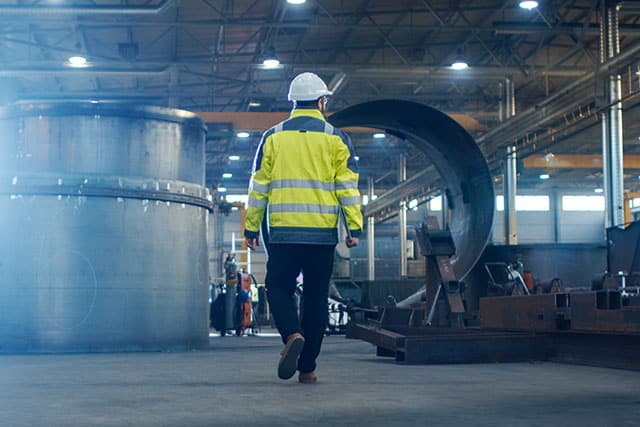
To avoid these, we’ve rounded up several ways a shelter company can help make the transition to manufacturing in Mexico as seamless as possible.
There are business and cultural differences to consider when operating in any foreign country. Enlisting the knowledge and experience of local experts can expedite setup and make it smoother.
Partnering with a Mexico shelter company automatically provides an innate understanding of compliance regulations and the industrial real estate and labor market, as well as insights into how to handle differences in communication and workplace expectations. Therefore, manufacturers can focus their time on production without having to worry about figuring things out on their own.
Failure to follow Mexico’s laws and regulations can lead to fines, project delays, and in some cases, full shutdowns. A key value of implementing Mexico shelter services is it minimizes risk and liability. Working under a shelter protects foreign manufacturers from legal exposure and includes all the permits and certifications necessary for them to legally operate in Mexico.
As more manufacturers look to Mexico as a cost-effective strategy, finding site facilities and skilled workers becomes more competitive. A shelter company can point manufacturers in the right direction regarding where to launch production and assist with recruiting and hiring qualified employees.
Through a site selection analysis, U.S. and other foreign manufacturers are given an overview of viable areas in Mexico to consider as they decide which location makes the most sense for their goals. Additionally, to effectively manage cross-border teams, it’s important to be aware of labor laws to ensure compliance is met. This includes addressing work week schedules, paid time off benefits, and general interactions between workers that may differ from the norm recognized in the U.S. and other countries.
While nearshoring to Mexico often reduces costs comparable to the U.S., Cina, and other industrial regions, working with a shelter company, specifically, can save businesses up to 50% on administrative roles. Additionally, companies won’t have to hire individual administrative departments to get their production up and running.
Shelter services in Mexico cover all administrative tasks necessary to launch production. These include HR, accounting, daily trade operations, payroll, taxes, and more. Due to the efficiency of the shelter model, manufacturers can expect to launch production in as little as three to four months, compared to the standard six to seven months it takes to set up a new legal entity.
Some companies choose to outsource their production to third-party manufacturers in Mexico. While this may help meet their demand, it limits oversight ability and maintaining quality assurance.
Shelter services in Mexico do not cover production tasks and responsibilities. This is left to the manufacturer, giving them full oversight of their processes and complete ownership of all tools, materials, and equipment, as well as any intellectual property rights.
There are several moving parts necessary to launch production in a foreign country. When making the move to Mexico, the majority of manufacturers choose to operate with Mexico shelter services.
This approach is customizable and allows companies to stay flexible to either expand services or eventually operate as their own entity. Those who work with IVEMSA typically stay for an average of 15 years, though there is always the opportunity to graduate from the shelter program as needed.
Hiring qualified labor is the top priority for manufacturers today. Finding enough industrial workers at a cost that makes sense for sustainability and growth is essential. With the level of skill and stability across several sectors, including automotive, medical, and aerospace manufacturing, expanding the employee pool has become increasingly competitive.
Thus, a growing number of U.S. and other foreign companies are exploring Mexico as a recruiting option to fulfill industrial roles as they expand. Manufacturing in Mexico allows for large-scale production with cost-effective, labor-intensive work while maintaining intellectual property protection.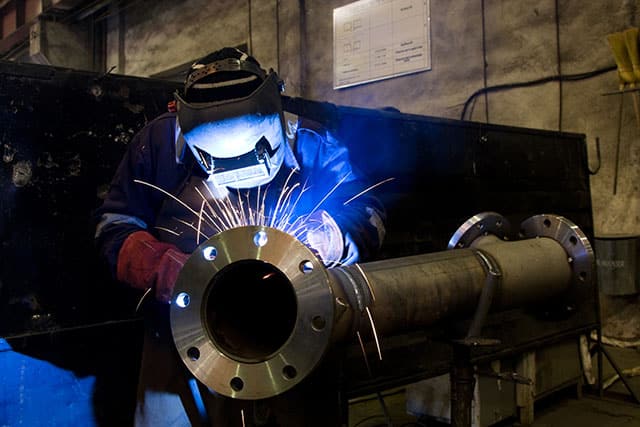
In fact, medium- or large-sized organizations without a presence in Mexico find themselves being left behind. To further the benefits, partnering with a Mexico shelter company gives foreign manufacturers an extra advantage when it comes to recruiting and retaining workers.
Here’s how:
In Mexico, certain locations are equipped to support specific sectors better. For instance, areas like Queretaro and Monterrey are known for their automotive and aerospace concentrations. Whereas, manufacturing hubs like Mexicali and Tijuana also add medical device and electronics manufacturing to the mix.
Regardless of what sector a manufacturer specializes in, a Mexico shelter company has the experience and expertise to point them in the right direction so they can recruit qualified employees as quickly as possible.
It’s rare for a company to only require entry-level employees for simple processes. In this case of low-mix, high-volume production, Asia is likely the more cost-competitive location. Depending on the output and business goals, the solution may be to diversify a portfolio by expanding to Mexico while maintaining operations in China at the same time.
As manufacturers consider operating in Mexico, a shelter company can schedule site visits to local universities and training centers to match them with the type of employees they’ll need for their projects.
A shelter will also help with employee contracts, minimizing risk, and keeping retention high. Although manufacturers can perform these recruiting and hiring functions on their own, it’s far less costly to have Mexico shelter services in place. In addition to HR, a shelter company handles other key administrative areas, such as accounting, taxes, and trade compliance, which are departments manufacturers would otherwise have to hire separately.
The main benefit of operating in Mexico is the availability of cost-competitive labor and employees with specialized skills which are difficult to find in the U.S. A shelter company can estimate the cost of production annually by factoring in the number of workers and required technical background needed.
Working with a shelter company is the way the majority of manufacturers choose to operate in Mexico. It reduces labor expenses, while also minimizing legal risk and exposure of operating in a foreign country. At the same time, it allows manufacturers to focus their full attention on production and safeguards their intellectual property rights.
See if making a shift to Mexico manufacturing makes sense for your company, particularly when it comes to fulfilling the need for industrial workers.
Mexico shelter services are an invaluable resource for U.S. and other foreign manufacturers and have been an essential part of their growth for decades. However, as more companies are exploring the option of expanding production to Mexico for the first time, it’s best to identify what makes for a good fit.
Though partnering with a shelter company eases the transition to manufacturing in Mexico, there are a few misconceptions regarding what shelter services do and do not entail.
To clear up confusion and help determine if implementing shelter services is the best route, here is an overview of what you need to know.
A Mexico shelter company works with U.S. and other foreign manufacturers to share strengths in a safe, efficient manner, creating a win-win situation for all parties involved. However, many mistakenly believe a shelter company takes on the production itself, which is not true.
Rather, a shelter company handles all the administrative tasks necessary for manufacturing so leaders can focus on their operational processes uninterrupted. Other unique benefits include:
● Lower overhead on administrative functions
● Reduced learning curve
● Tax advantages through the IMMEX business model
● Quicker setup times
● Reduced legal risk and liability
● Competitive cross-border costs
● Economies of scale
● Leverage and support with the Mexican government
● Allowance to focus on your core business from day one
Additionally, this type of partnership is flexible enough to allow manufacturers to part ways (or alternatively, ramp up production) at any time. While most extend working with a shelter for several years, it doesn’t have to be a permanent solution. A shelter company like IVEMSA will ease the transition for companies that wish to “graduate” from the program and eventually operate on their own.
Therefore, Mexico shelter services are a perfect fit for:
● A manufacturing company eager to expand versus one that wants to assign a third-party operator
● A manufacturing company with good products and intellectual property value
● A manufacturing company with a plant, equipment, and materials already in place that simply needs shelter services to assist with production launch
Having the local expertise of a shelter company helps to streamline the process of setting up production in Mexico. It also saves on costs, time, and resources so manufacturing leaders can concentrate on all things production.
As mentioned, a Mexico shelter company provides all the necessary administrative departments that manufacturers need to operate. This includes:
● Traffic and Customs
● HR, Accounting, and Taxes
● Payroll Processing
● Local Accounts Payable
● Talent Recruiting
● Dedicated Project Manager for Project Launch
● Full Compliance for Your Mexico Operation
It also includes assistance with site selection, permitting and certifications necessary for operating in Mexico, as well as consulting needs. The majority of foreign manufacturers often choose this option because it costs less than hiring these departments individually. Plus, they benefit from the local expertise, experience, and network a Mexico shelter company provides.
A shelter company is not a third-party manufacturer. Shelter services don’t include advice on where to buy equipment or materials or involve creating the product itself.
Additionally, it is important to clarify that all the costs related to your operation will be handled as a pass-through expense. This means a shelter company will not finance your costs for utilities, employee salaries, or taxes.
These types of expenses can be estimated by your shelter partner but are paid by the manufacturer. Though the shelter company can provide guidance in these areas, the costs and any purchase or expense made in Mexico are ultimately at the discretion of the manufacturer, with the shelter as the facilitator.
Those interested in Mexico shelter services need to be involved in production. Although a shelter company assists with recruiting and finding qualified workers, the manufacturer is tasked with onboarding and training production teams.
For companies exploring production in Mexico without establishing an actual physical presence, contract manufacturing is likely the more favorable option.
Shelter services are not required for manufacturers operating in Mexico. In some cases, it may not even be the most optimal fit. To determine if working with a shelter company is beneficial or if exploring a contract manufacturing option is best, consider the following questions.
Mexico shelter services are valuable when placing technical labor for various manufacturing sectors. However, when companies produce a consistent, predictable run of products, contract manufacturing may be the better option. This often applies to companies in the earlier stages of business growth when the demand for low-mix, high-volume products is greater than their current capacity.
Is outsourcing production the goal?
Shelter services are only available and applicable to foreign manufacturers running their own production. Companies that wish to outsource these processes to a third party will need a contractor manufacturer. Keep in mind, with contract manufacturing, companies do not maintain full oversight over quality assurance or consistency like they do when working with a shelter company.
Do you want to establish a legal presence in Mexico?
A shelter company serves as a foreign manufacturer’s legal presence in Mexico and takes on the administrative responsibilities associated with manufacturing. Though shelter services typically apply to those operating under the shelter umbrella, they are also applicable and can be customized for standalone entities as well.
Do you own your equipment, materials, and processes?
To benefit from shelter services, a company must own all of its equipment, materials, and operating processes. These are not provided as part of a shelter company partnership. Foreign manufacturers that use shelter services to delegate administrative tasks find value in maintaining full ownership over the full scope of production including their intellectual property rights.
Do all shelter companies operate in the same way?
In general, shelter companies offer similar services. However, it’s best to clarify what is included as some differ. For instance, some shelters may require manufacturers to use facilities they already own.
This can lead to complications down the road if a manufacturer graduates from the shelter program because they might have to leave their lease as well. However, IVMESA provides flexibility for manufacturers to choose their buildings and tailor shelter services to adapt to their specific needs.
As a well-established Mexico shelter company, IVEMSA has nearly 40 years of experience helping U.S. and other foreign manufacturers reach their production goals. With a 15-year average customer retention rate, the success of our shelter services speaks for itself.
However, if you’re unsure about whether this solution makes sense for your company or want to learn more about whether your project is a good fit, we are happy to discuss your options.
Mexico’s strategic location and cost-effective, skilled workforce have created a successful environment for U.S. and other foreign manufacturers that want to expand their reach. Shelter manufacturing services are available for those new to operating in Mexico as well as those who wish to establish their own legal entity.
When working with a shelter, foreign operators reduce their legal risk and exposure. Plus, there is a reduced learning curve when navigating Mexican laws and regulations. Either way, though, shelter services can be customized to meet the needs of each manufacturer and project.
Here are the main advantages shelter services provide and how they help to ease the transition for foreign companies manufacturing in Mexico.
Manufacturers that choose the shelter route save significantly on operating costs, including labor, infrastructure, and permitting and licensing fees. The need for outside consulting is limited as all administrative departments needed to launch production are already in place.
These include HR and payroll, taxes and accounting, and trade compliance services. Passing these responsibilities to a shelter company allows manufacturers to focus fully on operational processes and fully maintain control over intellectual property rights.
A shelter company also provides instant tax advantages and trade benefits. Every foreign company manufacturing in Mexico must be approved for the IMMEX program before production can start. The program exempts foreign manufacturers from the 16% value-added tax (VAT).
Through a shelter’s certification, this exemption is automatically applied to all temporarily imported goods, equipment, and materials needed for the manufacturing process. Furthermore, duties are not applied when exporting finished goods to the U.S. and Canada if they are marked as “Made in Mexico.”
When implementing shelter services in Mexico, manufacturers can expect to launch production in three to four months. This cuts the setup time nearly in half compared to the time it takes to set up a new legal entity. This efficiency saves costs and allows manufacturers to get products to market faster.
Shelter manufacturing services are designed for flexibility as manufacturers want to scale. Also, they are set up to support companies that eventually want to “graduate” from the shelter and become their own separate entity. With the constant changes that can occur during production, it’s helpful to have the agility to transition as needed.
Manufacturing in Mexico has been a unique advantage for U.S. and other foreign manufacturers for decades, spanning across multiple sectors. For 40+ years, IVEMSA has provided shelter services in Mexico to help manufacturing companies launch and manage their production. With a 15-year average retention rate, there is a reputation and history rooted in success when partnering with clients as they grow their businesses.
Making the transition to Mexico manufacturing can be challenging without the guidance of a local shelter company to streamline the process. Whether you are expanding production for the first time or seeking the support shelter services provide, our team can help you figure out the best route.
Global manufacturing competitiveness continues to rise as new technologies drive higher demand. And Mexico serves as a central hub of industrial support for U.S. and other foreign manufacturers as they seek to expand their production.
For decades, manufacturing leaders have successfully established a presence in Mexico with consistent growth across several sectors throughout the years. As more companies decide to follow suit and grow their own international footprint, they have several  competitive advantages thanks to what manufacturing in Mexico has to offer.
competitive advantages thanks to what manufacturing in Mexico has to offer.
Here are reasons why Mexico continues to be a viable option when expanding production and how shelter manufacturing services can make a positive difference.
Mexico is an ideal location for foreign manufacturers serving a U.S. audience. The proximity between Mexico and the U.S. results in quicker deliveries and less expensive shipping than other popular trade areas, such as China. Also, Mexico’s expansive transportation routes and supply chain create greater reliability so companies can get their products to market faster.
The U.S. has faced setbacks in fulfilling manufacturing roles over the past few years. With an entire industrial generation entering retirement and younger generations not as quick to take their vacant spots, there are millions of skilled laborers needed to complete the production demand.
Meanwhile, Mexico is known for its industrial workforce availability and low cost of labor, which makes it an optimal choice for foreign operators when recruiting and retaining qualified workers.
Large-scale production and quicker delivery times don’t take away from the commitment to quality when manufacturing in Mexico. There are several quality assurance protocols in place to ensure manufacturers stay competitive and keep their reputations intact.
Additionally, the relatively quick travel time between the U.S. and Mexico allows project leaders to provide in-person production oversight more easily and manage adjustments as needed.
After gaining speed for several years, Mexico surpassed China in 2023 as the top trading partner with the U.S. This is partially due to the incentives detailed by the trade agreement between the U.S., Canada, and Mexico which sets requirements regarding content origins and intellectual property protections. In addition to the USMCA, Mexico has 12 free trade agreements with 48 other countries, making it one of the most open and competitive markets in the world.
To help U.S. and other foreign operators with Mexico manufacturing, there is the unique advantage of shelter manufacturing services. Working with a shelter company provides local expertise and experience to help companies make a seamless transition at a lower cost. Shelter services in Mexico include all administrative responsibilities necessary to launch production, including site selection, HR and payroll, taxes and accounting, and trade compliance.
Mexico has played an important role in the global market and has continued to rise in ranking as a quality trade partner for the U.S. and other countries. To benefit from the competitive advantages of manufacturing in Mexico while also saving on costs, contact IVEMSA today.
Sources:
https://ustr.gov/countries-regions/americas/mexico#:~:text=Mexico
https://www.trade.gov/country-commercial-guides/mexico-trade-agreements#
Customization continues to be a business buzzword in 2024, and it’s no different for manufacturing. Though more companies are becoming familiar with the benefit of nearshoring to Mexico, not all business leaders know exactly what it entails and if the solution is a right fit for them.
For decades, global leaders have found success when manufacturing in Mexico as a way to cut costs and improve operational efficiency. Mexico’s geographic location, skilled industrial workforce, and favorable trade agreements have made it a go-to strategy, particularly for those with a U.S. audience.
And, when moving operations to Mexico, there’s the unique option of working with a shelter company. A shelter company handles all the administrative duties necessary to launch production. Their services include everything from HR and accounting to trade and legal compliance.
However, to optimize the opportunities available, companies must recognize how Mexico manufacturing is different, who benefits most, and how Mexico shelter services can be tailored to fit their changing needs.
There are specific rules, regulations, and benefits associated with Mexico manufacturing that aren’t applicable in other countries. The most notable is the IMMEX program which offers a generous tax benefit to U.S. and other foreign operators. Those who qualify receive exemption from the 16% value-added tax on temporarily imported equipment, materials, and goods.
While manufacturers may apply for IMMEX certification and permits as a standalone entity, it can take several weeks before they are approved. Whereas, a Mexico shelter company provides this tax savings from the start.
Automotive, aerospace, and electronics manufacturing, in particular, are among the top sectors exploring Mexico as part of their growth strategy. And, typically, it’s small to mid-sized operations that benefit most from what a shelter company offers.
Shelter services allows business leaders to leverage local expertise and networks to streamline their operational setup. For foreign manufacturers, it is the most cost-effective way to do business while minimizing legal risk and exposure.
Additionally, when partnering with a Mexico business shelter, companies can remain flexible depending on growth. They can scale up production or switch gears as needed. Shelter services are tailored to each operation, and manufacturers maintain full control over production and intellectual property rights.
With cost-effective labor, steady supply chains, and lower transportation costs, it makes sense for U.S. operators to expand their production to Mexico. Plus, the close proximity between the U.S. and Mexico allows companies to get products to market much faster.
Due to ever-increasing competition, operating under quick timelines (without compromising quality) is essential. A shelter company in Mexico helps manufacturers launch production within three to four months. Whereas, those operating as a standalone entity take closer to six to seven months.
Furthermore, a shelter company also provides:
● Built-in departments (versus individual outsourcing) for HR, accounting, and trade
● Cost savings on administrative and back office responsibilities, compliance, labor, infrastructure, and permitting and licensing fees
● Reduced learning curve regarding international customs compliance
Manufacturing in Mexico already provides an advantage for U.S. and other foreign operators wanting to save on costs and expedite production. However, it’s working with a shelter company that can give companies the extra competitive edge.
There are typically two ways of doing business as a foreign manufacturer in Mexico. Companies can either operate as a standalone entity or partner with a Mexico shelter company. The latter serves as a unique advantage for U.S. and other foreign manufacturers, especially for smaller operations in their first years.
However, regardless of the size of the operation, all companies need to have compliance. Working with a shelter company reduces the risk and liability of operating in a foreign country. Plus, there’s flexibility, so if after three to four years, a manufacturer decides they want to be an independent entity, there is an established process to help them graduate out of the shelter.
Often, U.S. project managers are already tasked with overseeing multiple projects before the decision to expand to Mexico is confirmed. It can quickly become overwhelming when trying to learn new compliance regulations, tax laws, and business and cultural norms while in the process of relocating.
Without Mexico shelter services, manufacturers miss out on the local expertise and administrative assistance necessary to launch production. Additionally, it is far more costly and takes longer to set up the various departments and ensure compliance is met. Whereas, a shelter company streamlines the process and is more cost-effective overall with many businesses saving up to 30% on labor-related administrative functions alone.
Furthermore, when operating as a standalone entity, manufacturers are responsible for leasing their own facilities and setting up utilities, securing permits and certifications, recruiting and hiring labor, and learning Mexico tax and trade regulations. They also face greater legal exposure and risk and nearly double the setup timeline compared to working with a shelter company.
A Mexico shelter company can help foreign manufacturers launch production in as little as three to four months versus the six to seven months it takes to set up as a standalone operation through a new legal entity. Also, rather than relying on U.S.-based project managers to automatically become experts in Mexico manufacturing, a shelter company provides a team of industry experts with an established infrastructure in place.
While administrative tasks are handled, manufacturers can fully focus on and maintain control of production, and they retain full intellectual property rights. Most foreign companies depend on shelter services in Mexico to get their operations up and running quickly and efficiently. It allows them to reduce costs without compromising manufacturing quality.
However, IVEMSA can help even if a company is already running its own standalone entity and needs assistance, such as with payroll processing or implementing a trade compliance department best practices. Every manufacturer has its own specific needs, and we are here to support any way we can. Our 15-year average customer retention rate shows how dedicated we are to those we work with.
Whether you require full shelter services or need to outsource only certain administrative departments, we provide cost-effective solutions that support long-term success.
The current state of manufacturing has shown China is no longer the attractive location it once was. In decades past, its cheap labor costs and quick production times made it advantageous for U.S. operators. However, the past few years have highlighted many of the persistent issues with outsourcing to China, leaving many to consider nearshoring to Mexico as an alternative.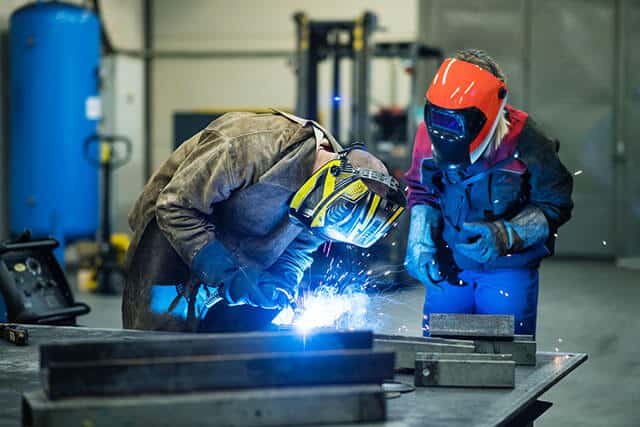
U.S. and other foreign manufacturers have faced problems with China regarding intellectual property theft and dwindling supply chains. Additionally, labor and transportation costs have risen to a point where they no longer offset the inconvenient logistics.
Alternatively, the proximity between the U.S. and Mexico is one of the most appealing factors for U.S manufacturers. There is also a solid infrastructure in place, as well as an industrial workforce, who is trained to work across a variety of sectors and roles. And, with the availability of global suppliers and speedier delivery times, the benefits continue to add up.
It will be particularly easier for sectors that already have a strong presence in Mexico to make the transition, such as automotive, aerospace, and medical device manufacturing, among others. Continual foreign direct investment and the historic success of manufacturing in Mexico also show the country can handle a large volume of goods similar to China.
Plus, the trade agreement between the U.S., Mexico, and Canada adds further motivation for U.S. operators to reshore production closer to home. Among the many provisions under the USMCA include a required amount of automotive content to be produced in North America, as well as stronger enforcement of intellectual property protection.
Though shifting production from China to Mexico likely presents a new learning curve for business leaders, many rely on a partnership with a Mexico shelter company to reduce risk and liability and save on labor, transportation, and permitting costs when making the transition.
Shelter services in Mexico include all the administrative departments and tasks necessary to launch production. These include site selection, recruiting and hiring employees, tax and trade compliance, and HR and accounting. With the help of a Mexico shelter company, manufacturers can expect to launch production in as little as three to four months versus the six to seven months it takes as a standalone entity. Shelter services also frees up time for manufacturers to focus solely on production while maintaining control over all processes and equipment.
The industrial shift from China to Mexico has happened slowly but steadily over the past few years, and as more production is planned for 2024 and beyond, China will change from being the global export hub it once was. And, for those focused on the U.S. market, it provides greater opportunity to grow at a cost-effective rate.
Having the support of a local shelter company to guide manufacturers through the process saves on time and costs, while adhering to production timelines.
Manufacturing in Mexico has prevailed as a leading business strategy, especially over the last few years. Though most are aware of the benefits this opportunity provides, there’s quite a bit of confusion that comes with making the move as well.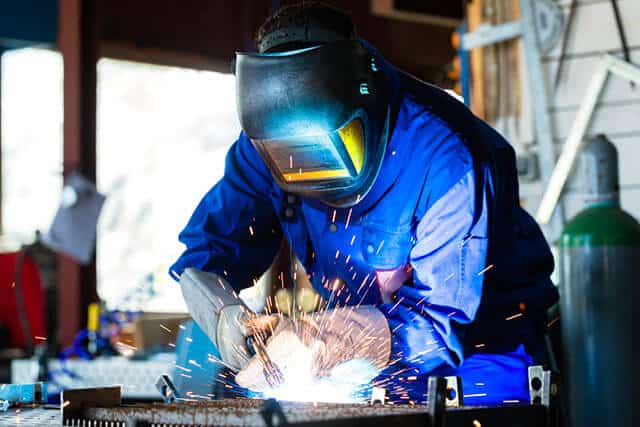
For decades, many U.S. and other foreign manufacturers have outsourced production to China without owning their own factories or equipment. Now, these same companies want to replicate this process in Mexico. What they often don’t realize is this requires a third-party company to build what they need; otherwise known as contract manufacturing.
Though contract manufacturing can be a favorable solution for certain types of operations, it does not have the same advantages as working with a shelter company under the IMMEX program.
Here are key differences to help identify the best solution for your production goals.
With contract manufacturing, companies work with third-party suppliers. They are quoted by the number of units produced. Therefore, the more units there are, the more it will cost.
Whereas, with a shelter services company, there is one fee for the administrative work and team that will be assisting with the production launch. Regardless of whether a company produces $1M or $100M of goods a month, the fee doesn’t change.
Companies that choose contract manufacturing are typically exposed to more quality issues, shipping delays, and employee challenges. Employees are not hired to work solely for one company. Typically, they’re assigned to multiple companies on a rotating basis and may not have the specific skills or investment in what is produced.
On the other hand, through a shelter company under the IMMEX program, the manufacturer hires employees solely for their company and project(s). These employees are part of their regular payroll and benefits. And the manufacturer maintains control over hiring, onboarding, and retention with the support of the shelter company, and without worrying about splitting time with other companies.
Companies with high-volume, low-mix production typically choose contract manufacturing. They are less concerned about maintaining ownership of the building and equipment and will outsource to a third-party vendor.
Whereas, manufacturers with proprietary technology and/or products value control over all things production, including the building, equipment, and intellectual property. They want to be in charge of their own destiny and will maintain ownership with the help of a shelter services partner.
A shelter services partner then handles all the administrative duties necessary to get production up and running. This includes everything from HR and accounting to trade compliance and IMMEX program certification.
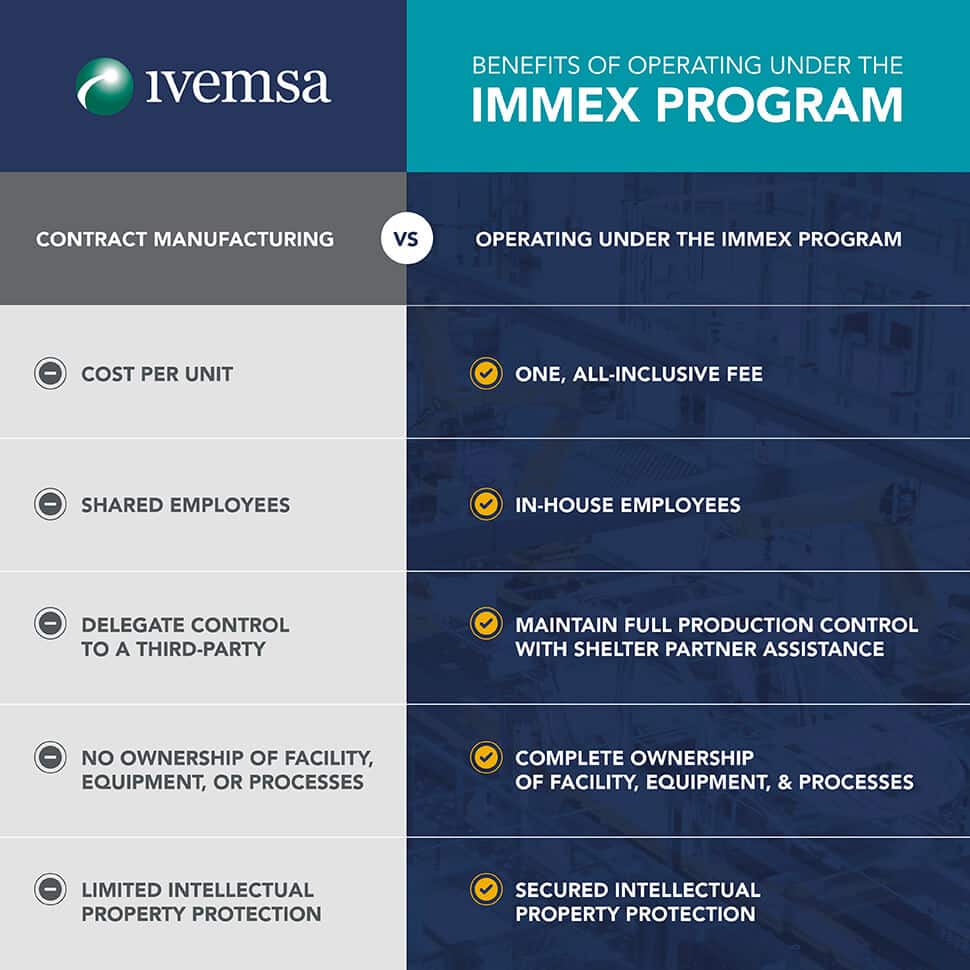
Though manufacturing has standard processes and protocols, each company is unique and requires varying levels of assistance in order to be successful. Operating under the IMMEX program through a shelter services partner delivers comprehensive support from a team of local experts.
For decades, China has been a leading international trade partner with the U.S., due to low labor costs. However, in recent years, more manufacturing companies have chosen to diversify their portfolios and expand their production to Mexico, if not move it altogether.
The trade conflict between the U.S. and China quickly caused major concern. Then, the instability of the subsequent pandemic years made many U.S. companies rethink their strategies. Due to these significant drawbacks, it’s no surprise that Mexico recently jumped ahead of China as the largest U.S. trading partner.

Though it’s been effective for decades, manufacturing in Mexico has become the preferred choice for U.S. operators looking for cost-conscious, localized solutions. Though each company has its own specific needs and requirements, this route is currently the most alluring, and here’s why:
The low cost of labor is what initially attracted manufacturers to move operations overseas. However, a generation of industrial workers in China are entering retirement age and younger people entering the workforce are unwilling to replace them. Therefore, there’s not the same influx of workers willing to work for low wages as before, which is similar to what the U.S. is experiencing.
Whereas, manufacturing continues to be a popular industry in Mexico, with tens of thousands of engineering graduates entering the workforce every year. Additionally, U.S. companies work in collaboration with universities in Mexico to get the skilled workers they need in a range of roles. This kind of work availability leads to cost-effective labor rates, with wages much lower than U.S., and in many cases, China.
Despite China’s low labor wages, the cost of shipping is high. For a long time, these costs offset each other, but with transportation and shipping costs at historic highs, and labor rates on the rise, it’s not the value it once was.
U.S. manufacturers prefer the close proximity that comes with manufacturing in Mexico. Depending on where their facilities are, they are often able to receive their shipments on the same or next day. This convenience and efficiency allow them to get products to market faster and eliminate additional costs when shipments are delayed.
The trade war between the U.S. and China quickly caused manufacturers to reevaluate their options due to retaliatory tariffs. Soon after, the USMCA was officially enacted, which gave incentives to those operating within the three countries. In fact, certain provisions require that manufacturing content be produced in the U.S., Mexico, or Canada.
Additionally, another advantage unique to Mexico is the country’s IMMEX program. This allows U.S. and other foreign manufacturers to temporarily import tools, equipment, and machinery needed for production with exemption from the 16% value-added tax.
Technology is changing at a rapid pace, and protecting intellectual property has always been a concern for U.S. operators in China. Whereas, in addition to tax incentives, the USMCA has specific provisions that enforce violations regarding intellectual property protection and copyright infringement. Companies developing sophisticated equipment and patented products can feel confident in maintaining ownership without fear of illegal reproduction.
U.S. and other foreign companies also have the option of manufacturing under the legal umbrella of a shelter services operator. This minimizes a company’s risk and liability and provides them with administrative support and expertise during the setup process.
Shelter services in Mexico include site selection, trade compliance, taxes and accounting, among other responsibilities necessary to get production up and running. Manufacturers maintain complete control over their processes and ownership of their intellectual property rights.
These are a few of the many ways Mexico outshines China. The competitive edge is hard to ignore, which is why an increasing number of companies are choosing to hop on board. Manufacturing in Mexico saves on production time and costs while maintaining convenience and quality for U.S. and other foreign operators.
Tension between the U.S. and China has been on the rise for years. Between a history of unenforced intellectual property protection and retaliatory tariffs, it all hit a turning point during the shutdown of the pandemic. As a result of the continuing complications, many U.S. manufacturers who had been operating in China for years had begun moving their operations to Mexico. 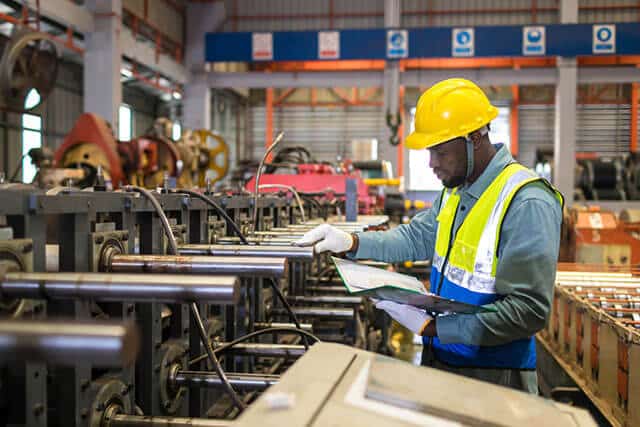
Global companies like GM, Kia, and a slew of others have paved the way for new factories to be built. According to Bloomberg, foreign direct investment in Mexico is notably up by more than 40% in 2023. And, as a result, China has ceded its manufacturing leadership position to Mexico, as Mexico takes the top spot as the main trade partner with the U.S.
This switch in positioning hasn’t occurred since the enactment of the North American Free Trade Agreement (NAFTA) in 1994, and those who take advantage of the nearshoring benefits can be part of this historic shift. Since the revamping of NAFTA to become the United States-Mexico-Canada Agreement (USMCA), the idea of “friendshoring” has become the newest trend.
North American leaders are capitalizing on the opportunity and promoting the trade bloc to keep manufacturing in Mexico as the preferred option over China. There’s been a significant surge in automotive, aerospace, and medical device manufacturing, and the increase in semiconductor production has put Mexico ahead. However, leaders eager to take advantage of this strategy should implement the right support to reach their long-term goals.
An increase in foreign production makes shelter services in Mexico all the more important. Without an established strategy or knowledge of what’s required, it can cause foreign companies to lose time and money before even getting started.
Since manufacturing in Mexico can’t begin without securing a facility, site selection is the first necessary step. The industrial parks in Mexico nearest to the border are the ones most in demand due to their proximity to the U.S. And consequently, high demand means there’s also a high price to follow.
A shelter service company can create a customized site selection analysis and provide multiple options based on a manufacturer’s unique needs. They can help identify viable facilities with easily accessible transportation in various parts of the country. However, Tijuana and Mexicali remain the most competitive, especially for manufacturers who are exporting to the U.S. Though lease rates may be higher compared to other areas, they are still the best option due to lower transportation costs.
In addition to site selection, shelter services in Mexico also include HR and recruiting, taxes and accounting, and trade compliance, among other necessary administrative tasks that are necessary when moving operations to Mexico. This availability of local expertise and experience is invaluable to streamline production setup and maximize opportunities associated with manufacturing in Mexico.
With the support of a shelter services company, U.S. and other foreign companies can significantly save on costs, launch production quickly, and maintain long-term success. Having a proven roadmap of success makes the transition smoother and allows manufacturing leaders to focus fully on production.
Source:
https://www.bloomberg.com/news/newsletters/2023-09-12/mexico-seeks-to-sustain-manufacturing-boom-big-take